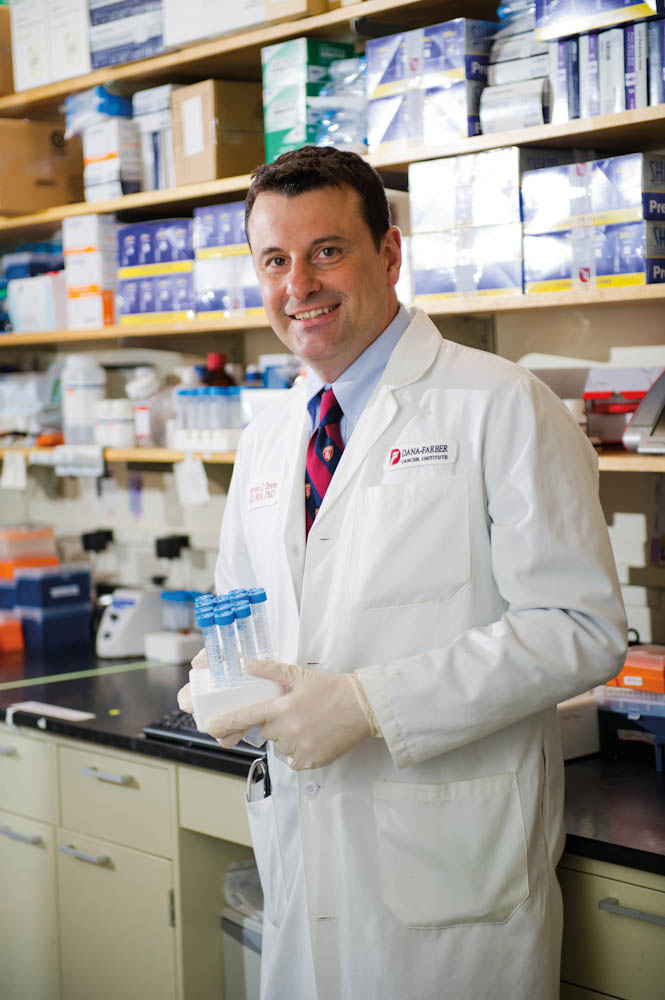It’s commonly thought that targeted therapy for cancer requires the development of separate drugs for each type and subtype of cancer. The recent approval of the drug ibrutinib (Imbruvica®), however, for Waldenström’s macroglobulinemia (a rare form of lymphoma) shows the opposite to be true: a single agent can be effective against multiple types of cancers, providing they spring from the same molecular mechanism.

Last month, Waldenström’s became the fourth cancer for which ibrutinib has been approved by the U.S. Food and Drug Administration (FDA). In 2013 and 2014 the drug was successively approved for patients with mantle cell lymphoma who have been treated with one previous therapy; for patients with chronic lymphocytic leukemia (CLL) who have received at least one previous therapy; and for patients with CLL whose tumor cells have lost a specific section of chromosome.
The common thread is that all four conditions are malignancies of B cells, white blood cells that make antibodies to fight infections. Ibrutinib works by stifling a protein called BTK in malignant B cells. Normally, BTK enables B cells to reproduce and survive and carry out two critical functions – adhering to neighboring cells and traveling in and out of lymph tissue. By blocking BTK, ibrutinib essentially prevents cancerous B cells from carrying out the activities they need to survive.
Read more:
The FDA’s decision in January made Imbruvica® the first and only approved treatment for patients with Waldenström’s. “Because there has never been an FDA-approved treatment for Waldenström’s since it was first identified over 70 years ago, doctors have had to rely on therapies borrowed from similar cancers to treat these patients,” said Steven P. Treon, M.D., Ph.D., director of the Bing Center for Waldenström’s Macroglobulinemia at Dana-Farber, who led the clinical trial that supplied the data on which the FDA’s decision was based. “I am truly grateful to the FDA for recognizing this need and for approving Imbruvica®, and I thank those scientists whose hard work and dedication helped discover the genetic cause of this disease and identified ibrutinib as a targeted therapy, and those clinicians at several leading medical centers who diligently enrolled the clinical trial showing that Imbruvica® is a safe and highly effective therapy for patients with Waldenström’s macroglobulinemia.”
In the United States, approximately 1,000 to 1,500 people are diagnosed with Waldenström’s each year, according to the American Cancer Society. It is more common in men than women, more prevalent in people of Ashkenazi (Eastern European Jewish) descent, and arises more often in older people than young. Treatments for Waldenström’s have included drugs such as rituximab, bortezomib, and bendamustine.

It is good that progress is being made.